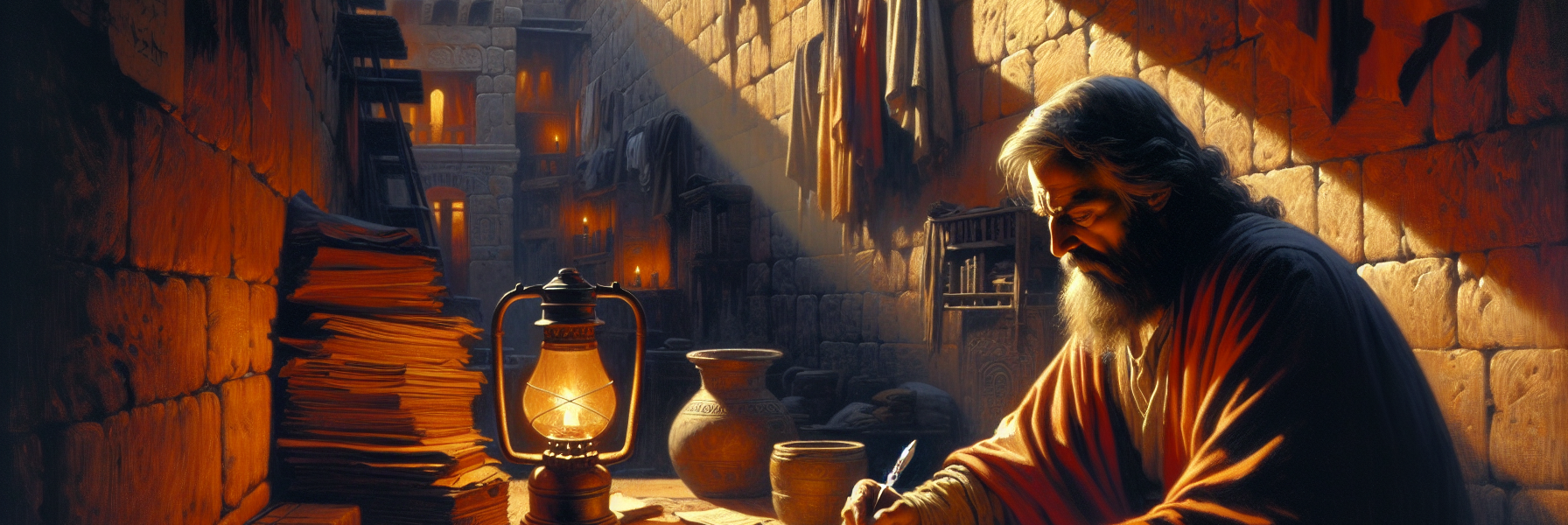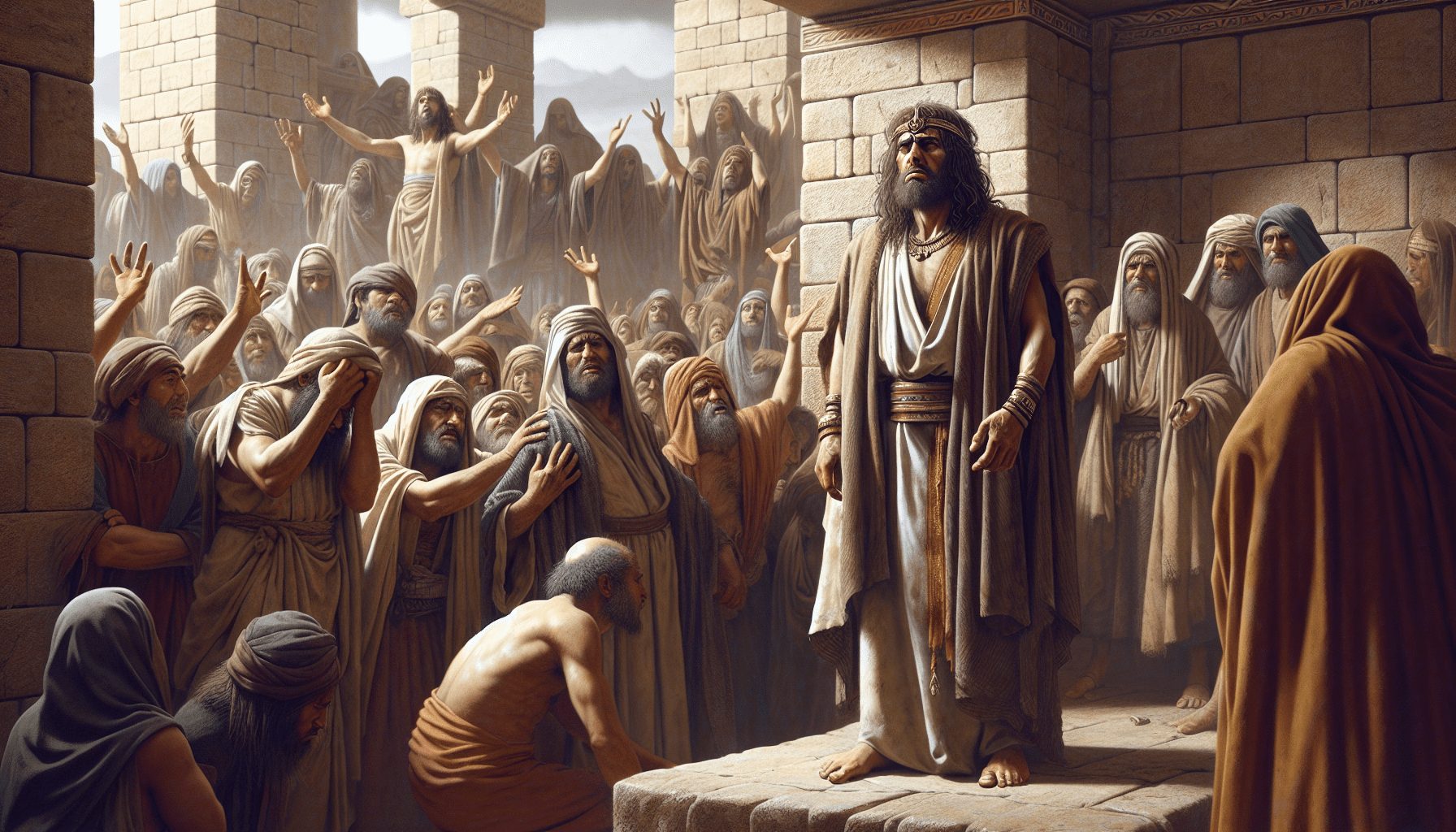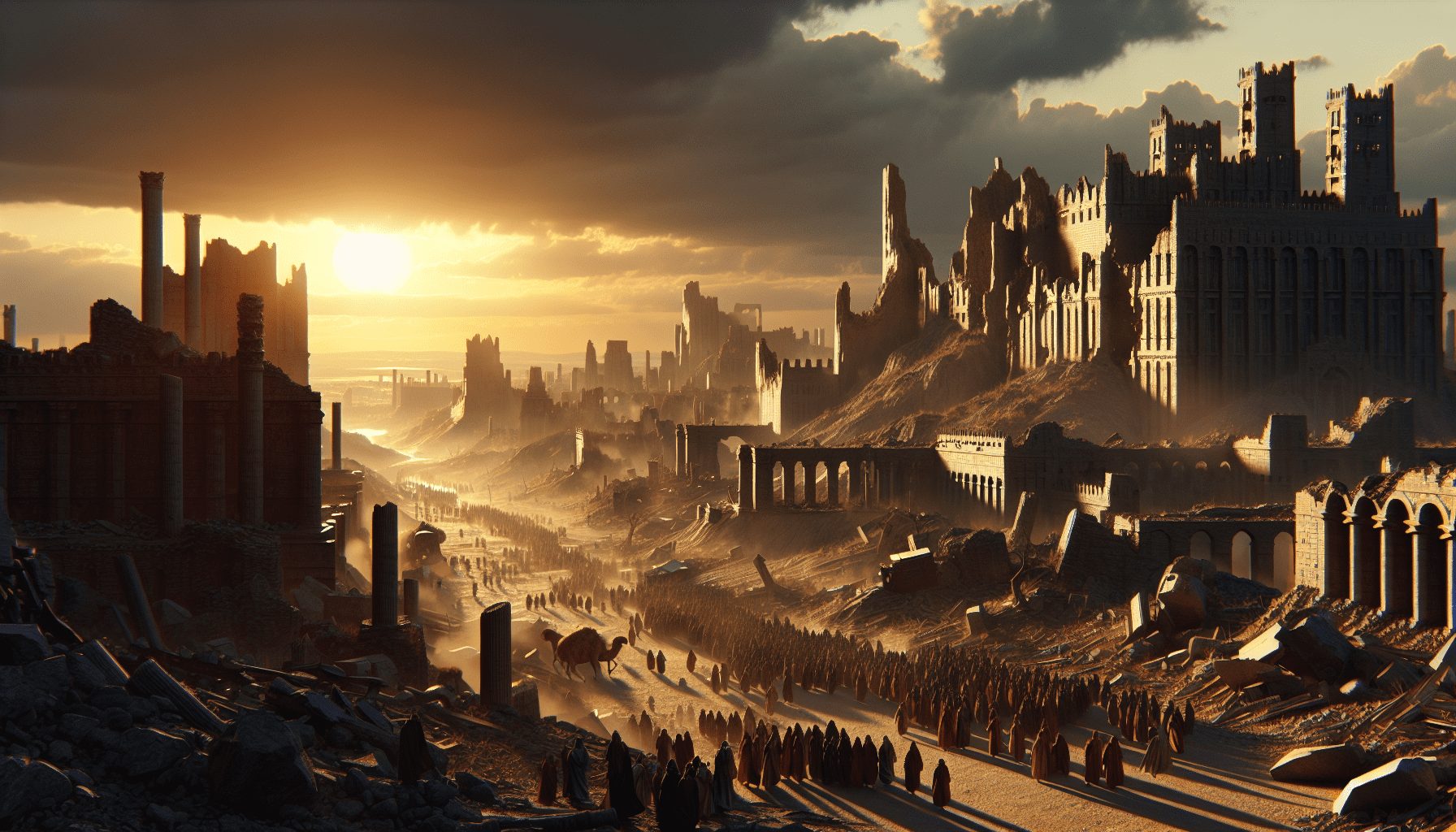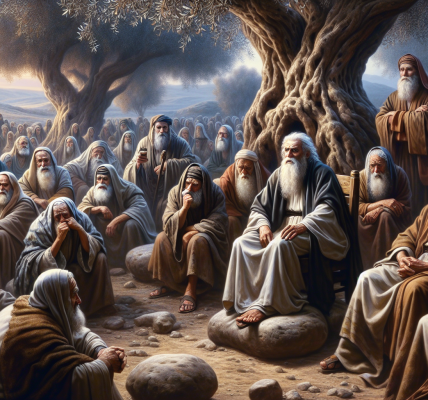**The Burden of Baruch: A Story of Faith Amidst Despair**
The sun hung low over Jerusalem, casting long shadows across the city’s narrow streets. The air was thick with tension, as if the very stones of the walls groaned under the weight of impending doom. The Babylonian siege had not yet broken the gates, but fear had already seeped into the hearts of the people. In a small chamber, lit by the flickering light of an oil lamp, a man sat hunched over a scroll, his fingers stained with ink. His name was Baruch, son of Neriah, the faithful scribe of the prophet Jeremiah.
For years, Baruch had served as Jeremiah’s voice, recording the words of the Lord as they were delivered—words of warning, of judgment, but also of hope. Yet on this night, the weight of those words pressed upon him like a millstone around his neck. His shoulders sagged, not from the physical strain of writing, but from the crushing burden of despair.
*”Woe is me now!”* he whispered into the dimness. *”The Lord has added sorrow to my pain. I am weary with my groaning, and I find no rest.”*
Baruch had once believed his service to Jeremiah would bring about repentance, that Judah would turn from her wickedness and be spared. But instead, the king had burned the scroll containing God’s warnings (Jeremiah 36), and the people had mocked the prophet’s words. Now, the armies of Nebuchadnezzar encircled the city, and Baruch’s hopes for peace, for a future, seemed to crumble like the mortar between Jerusalem’s cracking walls.
As he sat in his distress, the voice of the Lord came to Jeremiah, and the prophet sought out his grieving scribe. Jeremiah’s face was lined with years of sorrow, yet his eyes still burned with divine conviction.
*”Thus says the Lord, the God of Israel, to you, O Baruch,”* Jeremiah began, his voice steady. *”You said, ‘Woe is me now! For the Lord has added grief to my sorrow. I fainted in my sighing, and I find no rest.’”*
Baruch lifted his head, his heart pounding. God had heard his lament.
Then Jeremiah continued, *”Say this to Baruch: ‘Behold, what I have built I will break down, and what I have planted I will pluck up—yes, this whole land. And do you seek great things for yourself? Do not seek them. For behold, I will bring disaster on all flesh, says the Lord. But I will give your life to you as a prize in all places, wherever you go.’”*
The words struck Baruch like a gust of wind, both sobering and comforting. The Lord acknowledged his pain but reminded him that in the midst of judgment, His mercy still had a purpose. Baruch had hoped for greatness, for a triumphant restoration of Judah, but God’s plan was different. The nation would fall, yet Baruch’s life would be preserved—not as a reward for ambition, but as a gift of grace amid the storm.
Tears welled in Baruch’s eyes as the truth settled upon him. His suffering was not meaningless. Though the world around him would crumble, God’s faithfulness would not. He was not promised ease, but he was promised presence. Not honor, but preservation.
Slowly, Baruch unclenched his fists and wiped the ink from his hands. The future remained uncertain, the danger still loomed, but the weight on his soul had lifted. He would continue to serve, to write, to endure—not because the path was easy, but because the One who called him was faithful.
And so, as the night deepened and the distant sounds of siege preparations echoed through the city, Baruch took up his pen once more. The story was not over. God’s word would stand, and in the ruins of a fallen kingdom, His promises would still shine like embers in the ashes.
Baruch, the weary scribe, would live to see another day—not as a conqueror, but as a witness to the enduring mercy of the Lord.




